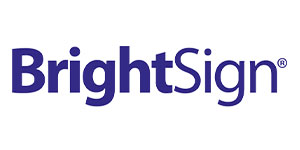PlanetVerify's secure document and personal data collection platform helps companies meet their CCPA (CPRA) Compliance requirements.
The PlanetVerify platform was developed specifically to help companies meet compliance requirements such as the California Consumer Privacy Act (CCPA). Introduced in 2018, the CCPA gives California residents a number of protections around the way their personal data is managed. As is the case with GDPR, consumers can request access to their data and request that it be deleted. CCPA also mandates that companies take reasonable security measures to protect a consumer’s personal data. The law was further expanded with the introduction of the California Privacy Rights Act (CPRA) which was passed in 2020 and became effective in January 2023 – bringing it closer in terms of scope to the groundbreaking General Data Protection Regulation (GDPR) in the EU.
PlanetVerify has a sophisticated set of compliance features which help companies meet their CCPA Compliance requirements including secure document and personal data collection, end-to-end data encryption, multi-factor authentication, access controls, personal data auditing, and data purging.
One of the key compliance benefits of the PlanetVerify platform is that the system provides a single – highly secure and encrypted – channel for the collection of personal data and sensitive files – eliminating non-compliance risk from the personal data collection process. Below we delve into the specifics of how exactly PlanetVerify can help your company meet CCPA Compliance requirements.
What CCPA (CPRA) Requires:
How PlanetVerify Supports:
Right to know – Under CCPA, individuals in California have the right to know about the personal information a business collects about them and how it is used and shared.
With PlanetVerify, only authenticated and permissioned users can access an individual’s personal data and documents. The Team Settings area shows who has permission to access personal data and documents. Data can be shared or assigned across multiple departments through the PlanetVerify platform in a secure and compliant way. With PlanetVerify, the personal data management process is secure, streamlined, and transparent meaning “right to know” requests can be dealt with quickly and easily.
Right to Delete – CCPA states that an individual can request that businesses delete any personal information they have belonging to them.
PlanetVerify users can run a Privacy Audit at any time that will quickly surface any personal data that is stored on the system. This data can then be purged if there is a requirement to do so. Alternatively, users can set up automated data purging rules before any data is collected.
Right to Access – Consumers have the right to request you provide them with access to the personal information you store on them in a “readily usable” format, free of charge and within 45 days from their request.
PlanetVerify helps companies meet data access requests through our data export feature. Upon request, all documents and personal data a company holds on an individual can be accessed and exported with ease. With PlanetVerify, you can also verify the identity of any individual that makes such a request.
Data Security – Under CCPA, penalties can be applied for a “violation of the duty to implement and maintain reasonable security procedures and practices.”
PlanetVerify adheres to the highest possible security levels and has been fully and independently certified for ISO 27001 international standard and SOC 2 Compliance. Our platform also possesses end-to-end encryption, multi-factor authentication, and user permission settings to ensure only authorized users have access to the relevant personal data
Privacy Policy – Under CCPA, businesses are required to disclose both the categories of personal information they collect and, also, how it is managed.
PlanetVerify helps companies meet this requirement by incorporating a privacy policy into the automated document and information collection process. Individuals are presented with the option to agree to this policy before sharing any personal information.
What is the CCPA?
The CCPA stands for the California Consumer Privacy Act. It is a data privacy law that was enacted in California, United States, and became effective on January 1, 2020. The CCPA gives California residents certain rights regarding their personal information collected by businesses, including the right to know what information is being collected, the right to opt out of the sale of their personal information, and the right to request deletion of their personal information.
What is the CPRA?
The California Privacy Rights Act (CPRA), also known as Proposition 24, was approved by California voters in November 2020 and amends the CCPA. The Act became effective in January 2023 and it enhances and expands certain provisions of the CCPA including the introduction of new privacy rights. The CPRA creates the California Privacy Protection Agency to enforce privacy regulations and imposes stricter obligations on businesses in terms of data processing and protection.
Who has to comply with CPA (CPRA)?
The CCPA applies to businesses that meet certain criteria and collect personal information from California residents. Specifically, the following entities must comply with the CCPA:
It is important to note that the CCPA applies to businesses regardless of where they are located, as long as they collect personal information from California residents and meet the criteria outlined above.
What are the penalties for CCPA non-compliance?
The CCPA provides for monetary penalties for non-compliance. The Attorney General can impose fines of up to $7,500 per violation, and intentional violations can result in higher penalties. Non-compliant companies may also face legal action from individuals or class-action lawsuits seeking damages for privacy violations.
With over 120,000 users, PlanetVerify is used by companies all around the world to collect, manage, and share sensitive files and information in a compliant manner.








Collection, storage, verification and compliance with the CCPA (CPRA) and all other data protection rules and regulations is made easiest with the privacy by design approach adopted by PlanetVerify. Creating an infrastructure to collect, manage and monitor your client or customers personal data in real time has never been so integral to the core functionality of companies as it is today.
Using services like PlanetVerify to achieve these goals will position you as a safe, fortified and trustworthy company and do away with later stresses of dealing with any unwanted data protection breaches, or Subject Access Request (SAR) your company might be unprepared for.
A better experience for your clients, fewer headaches for your team. You’ll be set up in minutes.
Schedule a quick consultation with our solution design team to learn how PlanetVerify can help you implement secure, digital, and highly efficient onboarding processes – that are tailored to your unique business needs. Simply leave your details below, and we’ll do the rest!